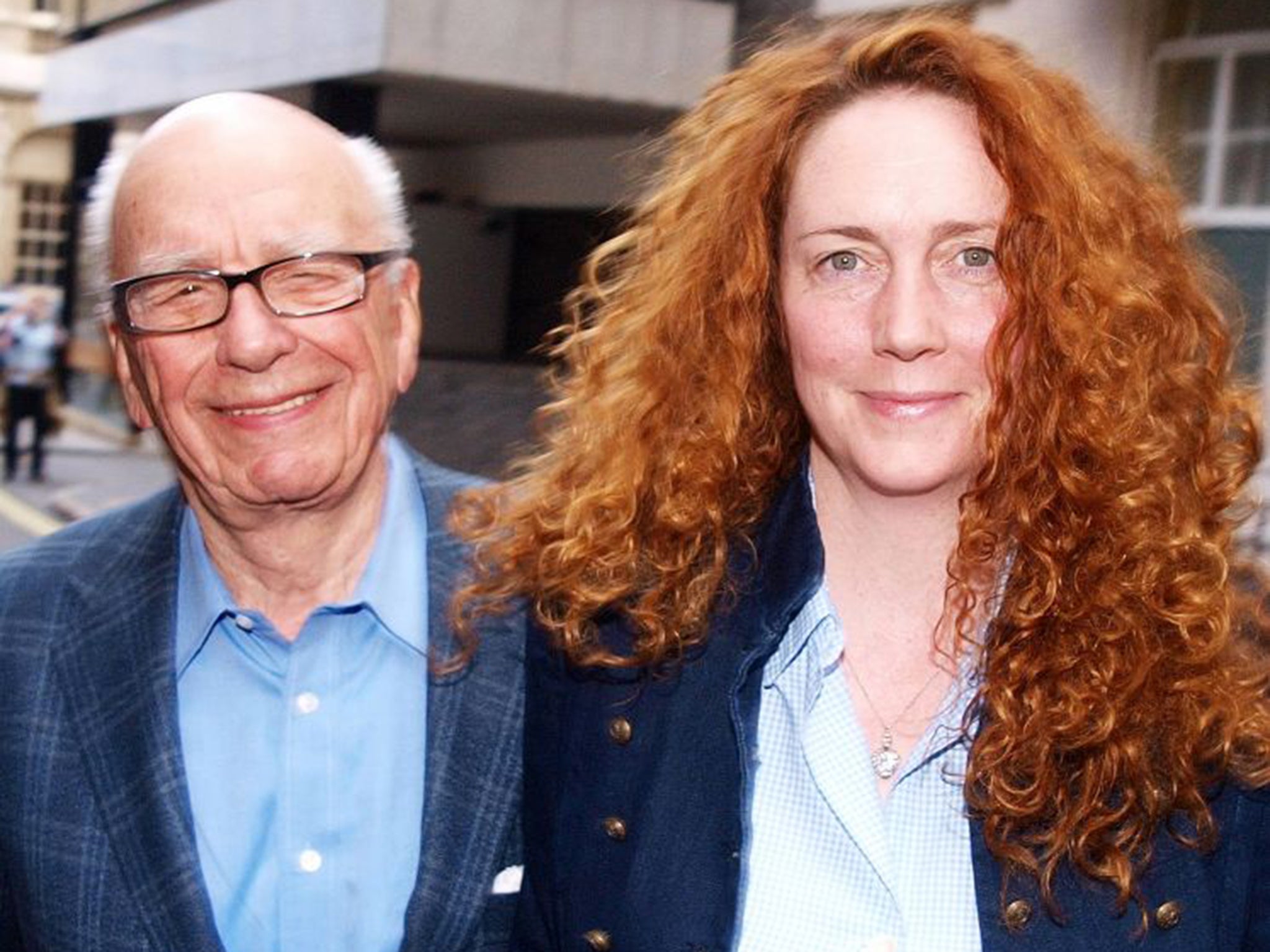Rupert Murdoch proves his faith in print with WSJ's broadsheet relaunch
After surprising everyone with his reinstatement of Rebekah Brooks in the UK, the News Corp boss is now relaunching the Wall Street Journal’s international editions and taking on the FT on its home turf. Media Editor Ian Burrell reports

Your support helps us to tell the story
From reproductive rights to climate change to Big Tech, The Independent is on the ground when the story is developing. Whether it's investigating the financials of Elon Musk's pro-Trump PAC or producing our latest documentary, 'The A Word', which shines a light on the American women fighting for reproductive rights, we know how important it is to parse out the facts from the messaging.
At such a critical moment in US history, we need reporters on the ground. Your donation allows us to keep sending journalists to speak to both sides of the story.
The Independent is trusted by Americans across the entire political spectrum. And unlike many other quality news outlets, we choose not to lock Americans out of our reporting and analysis with paywalls. We believe quality journalism should be available to everyone, paid for by those who can afford it.
Your support makes all the difference.At the grand age of 84, Rupert Murdoch must know that time is running out when it comes to settling scores with some of his oldest media rivals.
It would explain why he is suddenly back on the front foot, driving a surge of activity at his News Corp publishing empire. The veteran news tycoon has a new confidence and defiance, and he has once again demonstrated his faith in the printed word as a valued weapon in his media armoury.
News Corp’s flagship Wall Street Journal title announced yesterday that it would be relaunching as a broadsheet newspaper in Europe and Asia, while enhancing its digital offering in those two regions.
The news follows Mr Murdoch’s reappointment last month of Rebekah Brooks as head of his UK newspaper stable, in defiance of those who criticised her performance in charge of the business during the phone-hacking scandal. He is also said to be preparing for a legal battle with Google, which he blames for undermining the business model of his beloved papers.

After a lifetime in the press industry, Mr Murdoch has newsprint embedded in the whorls of his fingertips. By turning The Wall Street Journal Europe into a broadsheet format he is not only expressing his belief in the enduring demand for a physical paper news product, but stepping up the fight with the Journal’s big rivals, the Financial Times and The New York Times.
The FT has transitioned to a digital-first publishing model and its print sales are under pressure, with a further fall of 3 per cent reported last month.
The WSJ global push is being led by a team of Murdoch lieutenants who formerly worked at the FT. Gerard Baker, the editor-in-chief of The Wall Street Journal, said “global expansion” of the title was “central to the success of our enterprise”. He said the new products would attract readers by being “an indispensable source of news on US politics and the economy”, as well as through its business coverage.
William Lewis, the chief executive of Dow Jones and publisher of The Wall Street Journal, who like Mr Baker is British, said the new launch showed “We are passionate about innovation across all aspects of our business.”
But the truth is that the WSJ in Europe has long been in trouble. It relaunched with great fanfare in 2005 as a tabloid, following in the steps of The Independent and The Times, and hoped to save money in printing costs, but the paper struggled to get noticed.
Two years later, in 2007, Mr Murdoch finally persuaded the Bancroft family to part with Dow Jones for $5.4bn (£2.7bn). The deal has since been recognised as one of the smartest-ever disposals of a traditional media business and News Corp is facing a long uphill battle to recoup its investment.
Fears in America that News Corp would diminish the editorial standards of the WSJ have proved unfounded and the circulation of the core US edition (which is heavily linked to subscriptions) has remained remarkably stable, contributing to a worldwide sale of 2.3 million.
The paper’s coverage of the hacking scandal attracted little controversy, save for one editorial which accused The Guardian and BBC of pursuing the story for “commercial and ideological motives”.
But the WSJ’s European sale has continued to wane. According to industry body ABC, the paper’s circulation was down to 66,843 in December 2014, of which 43,001 were multiple sales to airlines, hotels and the like. A further 13,984 were free circulation, leaving only 4,849 in retail sales and 4,000 in single copy subscriptions.
Some publishers might have called it a day, but Mr Murdoch’s passion for print and his readiness for a battle suggests he may believe that the FT has left him room for manoeuvre in its European backyard. The new broadsheet will offer 50 per cent more content than the smaller format.
But the “expansion” is also a form of consolidation. The Wall Street Journal Europe will be distributed via just eight cities (of which London is the only one in the UK), chosen for being “global economic and finance centres”, said Katie Vanneck-Smith, global managing director of Dow Jones.
The paper will no longer be available in print in certain European countries, such as Poland. In Asia too, the WSJ will distribute in print through just eight carefully chosen cities. Other buyers will need to subscribe to the digital edition.
Ms Vanneck-Smith said it made no sense for an international paper to be in tabloid format in some markets and broadsheet in others: “Lots of our customers are global business leaders; now they get a product that looks and feels like the Journal they love.”
News Corp did not wish to be labelled as “digital-first publisher” and remained “seriously committed to print”, she added.
While most of the publishing media appears convinced that its audience wants its news on tablets and mobiles, the biggest player of all remains unconvinced.
“The moment when Rupert gives up on print,” said one seasoned Murdoch observer, “is the moment when the world gives up on print, and probably the moment when he gives up on life because ink runs in his veins.”
Join our commenting forum
Join thought-provoking conversations, follow other Independent readers and see their replies
Comments